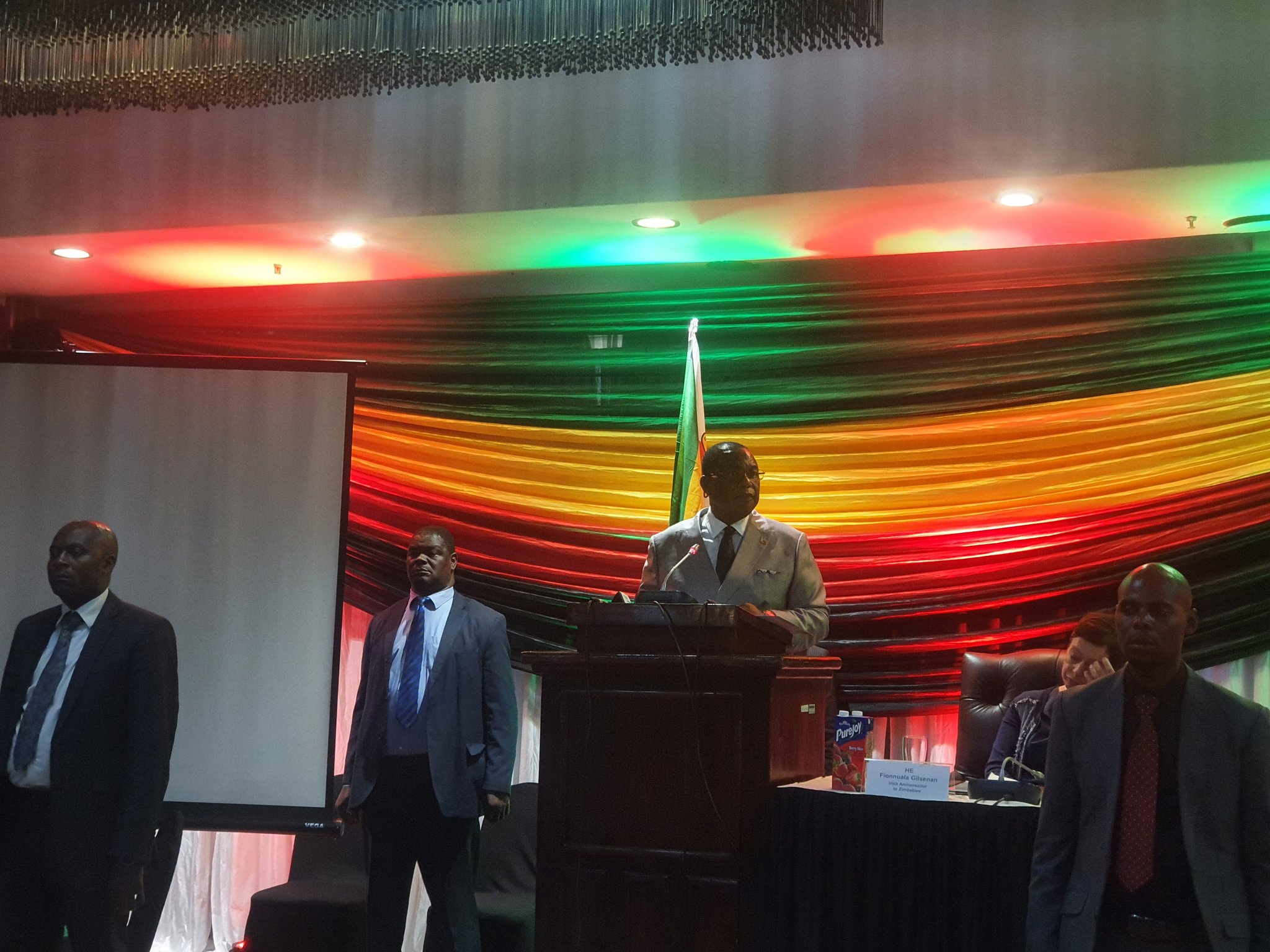|
Getting your Trinity Audio player ready...
|
At a high-level event held today at the Rainbow Towers Hotel in Harare, His Excellency Honourable Vice President and Minister of Health and Child Care, Dr. C.D.G.N Chiwenga, launched the Health Resilience Fund (HRF), jointly with the funding partners and UN agencies in the health sector.
The event also marked the launching of the National Health Strategy (NHS) 2021-2025, the Investment Case for the National Health Strategy and Coordination Framework for the Health Sector. The Fund and Strategies aim to further improve the health of the population of Zimbabwe.
The National Health Strategy (2021–2025) is a deliberate effort by the Government of the Republic of Zimbabwe to improve the health and wellness of the population and to ensure universal access to health services, whilst the Investment Case to the National Health Strategy (2021–2025) calls for efficiencies in the utilisation of available health resources. The Health Sector Coordination Framework consolidates and coordinates shared efforts by the Ministry of Health and Child Care and all key stakeholders to improve sector governance and oversight.
The Health Resilience Fund (HRF) is a pooled health fund that will contribute under the coordination of the Ministry of Health and Child Care to improve health care for vulnerable mothers, newborns, children, and adolescents in Zimbabwe. Funding partners are the European Union, the Governments of Ireland, the United Kingdom, and Gavi, the Vaccine Alliance while UNICEF, UNFPA and WHO are the technical partners of the Fund.
The Health Resilience Fund (HRF) is aligned with Zimbabwe’s National Development Strategy 1 (NDS1) and the National Health Strategy (NHS) 2021-2025. It will run till 2025. Its objective is to consolidate the gains achieved under the Health Development Fund. The Fund will focus on three health pillars: ending preventable maternal, newborn, child, and adolescent deaths; global health security; and health systems strengthening. It has a budget of approximately USD 90 million.
The Health Development Fund (HDF) that preceded the Health Resilience Fund was supported by the European Union, Ireland, Sweden, the United Kingdom, and Gavi, the Vaccine Alliance. It contributed to improving several health indicators, as shown by the 2019 Multiple Indicator Cluster Survey (MICS) and the 2022 National Population and Housing Census. Improvements were noted in maternal mortality, infant and under-five mortality, adolescent fertility, contraceptive prevalence, and chronic malnutrition or stunting. The maternal mortality ratio, for instance, reduced from 614 to 462 per 100,000 live births between 2014 and 2019. Also, the Health Development Fund contributed to maintaining the availability of essential medicines and commodities in primary healthcare facilities at an average of 80%.
In 2020, the Health Development Fund quickly adapted to the challenges caused by COVID-19 and contributed to the National COVID-19 Response plan. The Health Development Fund supported the response through coordination activities, infection prevention, and control capacity strengthening, risk communication and community engagement activities, treatment of COVID-19 cases, procurement of ventilators, test kits, personal protective equipment, essential medicines, and laboratory reagents, and strengthening health controls at the country’s borders. This complemented the Government led multi-sectoral response which included the COVID-19 vaccination programme.
The Health Resilience Fund will build on the gains of the Health Development Fund and address the remaining challenges to ensure access to maternal, child, and sexual and reproductive health and nutrition services, and to strengthen the health system’s resilience to shocks.
In his address during the launch, Mr. Edward Kallon the United Nations in Zimbabwe Resident and Humanitarian Coordinator, said the unique health initiative, the result of co-creation among partners, will also impact positively other sectors like education, WASH, gender equality, and equity, job creation, thus enabling the achievement of other SDGs, including strengthening the resilience of the people of Zimbabwe.

He expressed his heartfelt appreciation to the whole health community and all the partners who have played an essential role in implementing the health activities supported by the Health Development Fund and turned the Fund into a success.






